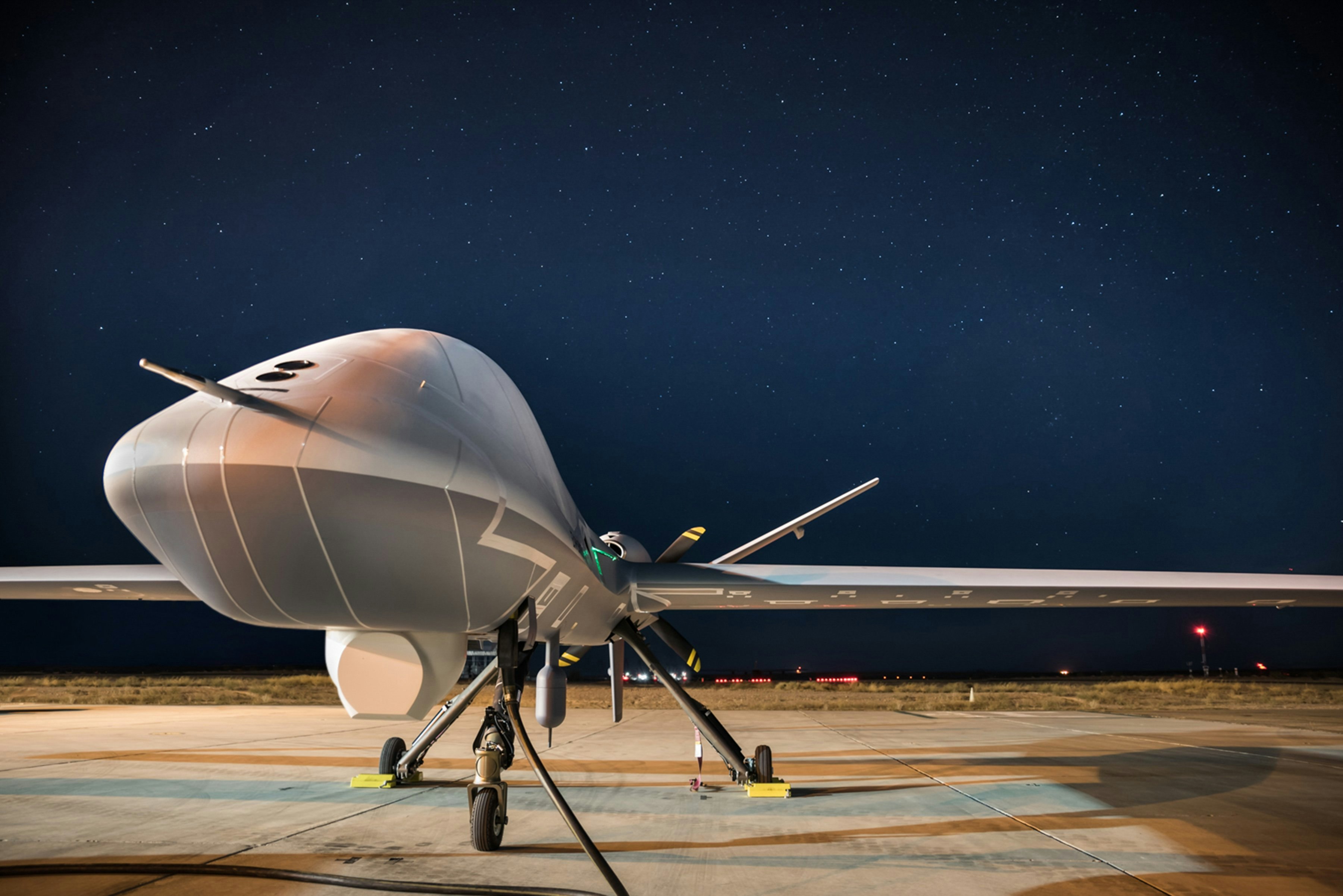Remotely Piloted Air System (RPAS) Protector crossed the Atlantic Ocean from North Dakota to Gloucestershire in just over 20 hours. It's the first time a craft of this nature has accomplished such a thing and the first time a craft has entered UK airspace under beyond line-of-sight communication control.
The Protector RG Mk1 is due to enter service with the UK as lead customer in the early 2020s.
Protector unmanned aircraft makes solo trans-Atlantic flight
The Protector RG Mk1 is due to enter service with the UK as lead customer in the early 2020s.
Protector unmanned aircraft makes solo trans-Atlantic flight


